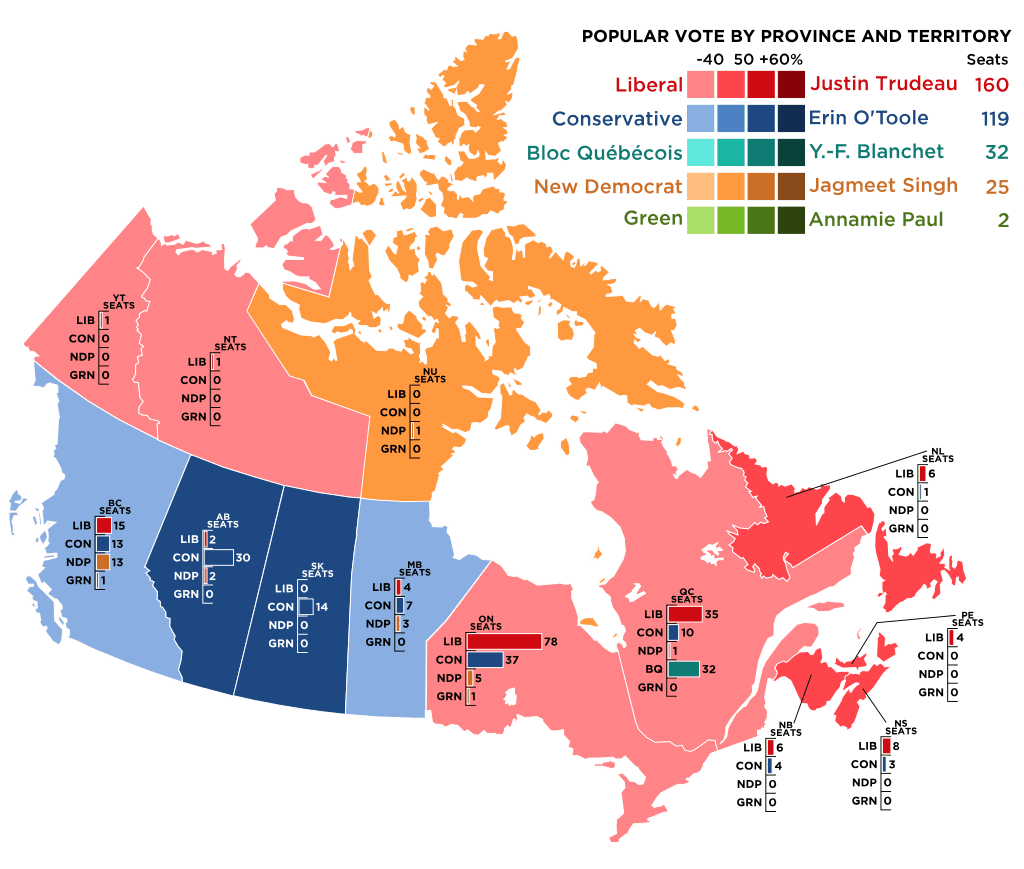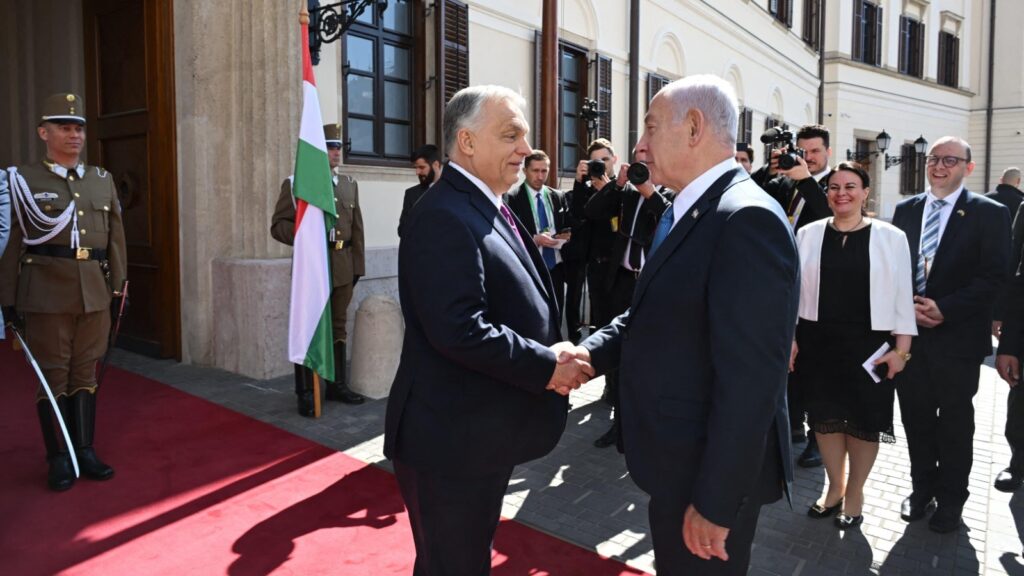The province of Alberta just inaugurated its newest premier, the conservative Danielle Smith. Smith is a well-known sovereigntist, both in matters concerning her province as well as individual freedoms. Therefore, it came as no surprise that in her speech made after being sworn in as the head of the provincial government she spoke out in support of freedom of choice when it comes to Covid-19 vaccination. The unvaccinated, she said, ‘have been the most discriminated group that I’ve ever witnessed in my lifetime…I want people to know that I find that unacceptable, that we are not going to create a segregated society on the basis of a medical choice.’ For those who don’t remember, Canadian Prime Minister Justin Trudeau was among the fiercest vaccine proponents globally. He went as far as declaring anti-mandate protesters domestic terrorists and attempting to freeze their bank accounts for taking to the streets. Since then, the truckers’ protest has become a symbol of sovereigntism in Canada—something Smith referred to in her speech as well. But the contention between the conservative provinces and liberal Ottawa did not start with vaccines and will not end with them either. The election of Danielle Smith is testimony to its revived momentum.
Alberta’s Patience Running Out
The flagship of Smith’s campaign was the promise of the Alberta Sovereignty Act (ASA). The proposed bill would in theory enable the province to ignore or bypass federal laws and rulings that go against Alberta’s interests. The policy areas in question could include federal regulation of new energy projects, climate change legislation, vaccination policies and even gun control laws, but also anything else that would serve as a basis for conflict between Edmonton and Ottawa. The definition is vague for a purpose; it wasn’t designed to ease the symptoms but to treat the sickness. While many critics call the Sovereignty Act inherently unconstitutional and a ‘full-frontal attack on the rule of law’, Smith’s election victory shows that the majority of the people are behind it. By common sense, that wouldn’t be the case if they didn’t feel that the federal government was overreaching to some extent. Well, is it?
Ottawa’s tendency to hinder provincial authority and development can have multiple manifestations. According to Marco Navarro-Génie, a senior fellow at the Frontier Centre and president of the Haultain Research Institute, it happens ‘through a combination of inaction, obstruction, and intrusion. In recent examples, Ottawa’s inaction allowed unconstitutional blockades to Alberta’s exports; Ottawa obstructed new energy developments such as Teck Frontier; and Ottawa intruded in Alberta’s jurisdiction with its desire to grab the lawful property of Albertans.’ The latter refers to the federal government’s mandatory firearm buyback program. Canada’s federal police force, the RCMP, was tasked with carrying out the confiscation, but Alberta intervened. In a highly symbolic step—and based on pre-existing provincial-federal agreements regarding policing set by the constitution—the province vowed not to let federal agents implement the ruling within its borders. Now, with Smith in power and the Sovereignty Act in reach, that vow is turning into reality.
Other historical conflicts between Ottawa and Edmonton also persist. As Canada’s main oil powerhouse, Alberta enjoys a relatively high GDP among the country’s provinces. To be more precise: it would enjoy it, were it not for the federal policy of ‘equalization payments’ meant to address the fiscal disparities between the Canadian provinces. Additionally, while the others are profiting from it, the more liberal provinces often criticise Alberta’s oil industry and support Ottawa in its goal to restrict it, as happened in the case of the failed Northern Gateway pipeline project.
Energy and finance, therefore, are at the heart of Alberta and Ottawa’s disputes. Others, such as gun control, public health and education (which becomes most relevant when it comes to critical race theory and LGBT issues) only stoke the already burning flames. Albertans do feel that Trudeau’s federal government has them in its crosshairs because of political and ideological differences. Truth be told, most misunderstandings regarding policy jurisdiction between the provinces and Ottawa involve either Alberta or Saskatchewan, the primary conservative strongholds of the country. They are—with a bit of a stretch— in a position similar to that of the Central European countries in their relationship with Brussels.

Is the ASA Unconstitutional?
But is the Alberta Sovereignty Act truly unconstitutional? Also, does it mean that the province seeks to ultimately secede, as many fear? In short, the answer is no to both questions. After winning the election, Smith’s campaign team made every effort to clarify the rationale behind ASA, which is now certain to be put forward. As her spokesman stated, ‘the sovereignty act will be drafted in accordance with sound constitutional principles. The premier-designate looks forward […] to draft legislation that protects and asserts Alberta’s constitutional rights in accordance with the rule of law.’
This means that while ASA is meant to be used as a legal tool to help refuse provincial enforcement of federal policies or laws only when they are in violation of Alberta’s jurisdictional rights set by the constitution, it will not allow the province to overlook Supreme Court decisions. As the above-mentioned Navarro-Génie explained, the Sovereignty Act ‘is not an instrument for “independence” as some have wrongly suggested. Alberta has every right to occupy the fullness of the jurisdictional spaces that the Constitution confers to provinces… The history of Western Canada is painted with jurisdictional transgressions, punitive violations, and over-reaches from Ottawa to the detriment of provinces. The ASA is thus meant to defend the [provinces’] constitutional authority’, by being a reassertion of already existing rights based on the principles of subsidiarity.
The future of the legislation is uncertain, although its implications may be significant. Regardless of whether it will have the intended effect of taking control of the province’s internal policies, it will certainly raise tensions between Edmonton and Ottawa. Should Smith be able to utilise the ASA’s power successfully, it could also create a precedence that other Western Canadian provinces would want to follow. It is not hard to see why that scenario would be viewed as dangerous from Trudeau’s perspective. Nonetheless, his hands seem tied for the moment. Repressing the Sovereignty Act would only prove its point, and Ottawa knows that. Therefore, it may prompt the federal government to take a more considerable—and thus, democratic—approach when it comes to jurisdictional overreach or policy-making based on leftist ideology. If it wants to preserve the unity of Canada, it should allow every voice to be heard.








